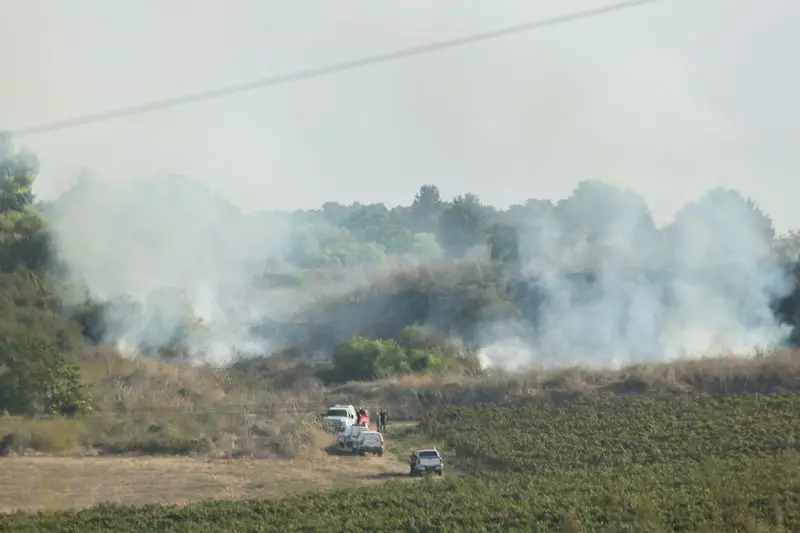The geopolitical landscape in the Middle East continues to be fraught with tension and conflict, with recent developments illustrating a dangerous escalation. Prime Minister Benjamin Netanyahu’s declaration that Israel would impose severe repercussions on the Iran-aligned Houthi movement from Yemen marks a significant moment in this ongoing saga. The Houthis, known for their missile capabilities and regional influence, have once again made headlines with their ability to strike deep into Israeli territory, signaling a new level of threat that cannot be overlooked.
On a seemingly ordinary Sunday morning, the calm in central Israel was shattered as air raid sirens blared, warning residents of an impending missile attack. The missile, reportedly a hypersonic ballistic weapon, traveled an impressive 2,040 kilometers in a mere 11.5 minutes, showcasing the Houthis’ advancing military technology. Although initial reports suggested the missile fell harmlessly in an open area, subsequent investigations by Israeli military officials revealed it likely fragmented mid-air, scattering debris and avoiding any casualties. This incident encapsulates not just a military attack but also a psychological operation designed to instill fear among the Israeli population.
At a weekly cabinet meeting following the missile strike, Netanyahu did not hold back in his condemnation of the Houthi actions. He issued a stark warning, implying that the group should be cognizant of the consequences of their military provocations. His comments referenced previous attacks and hinted at the possibility of future retaliation. By invoking the memory of an airstrike on Hodeida, Netanyahu highlighted Israel’s readiness to act decisively against threats to its sovereignty, demonstrating that such actions cannot and will not go unpunished. However, the effectiveness of these retaliatory measures will be critical as tensions brew in the region.
Houthi missile launches targeting Israel have become more frequent, particularly since the eruption of hostilities involving Hamas. Their rhetoric emphasizes solidarity with the Palestinian cause, attempting to frame their actions within the broader ideological context of resistance against perceived Israeli aggression. As geopolitical allies of Iran and militant opponents of Israel, the Houthis are leveraging their military capabilities to assert themselves on the regional stage. With the Houthi military spokesman Yahya Sarea asserting that the recent missile success is only the beginning, it raises alarms over a possible new chapter of intensified conflict.
As regional dynamics evolve, the prospect of further strikes against Israel seems inevitable, particularly as the October anniversary of heightened conflict approaches. Following the missile launch from Lebanon on the same day, it becomes clear that Israel is surrounded by adversaries willing to test its defenses. While the Israeli military successfully intercepted many projectiles, the sheer volume of threats indicates a new normal of aggressive posturing from groups aligned with Iranian interests. This raises critical questions about Israel’s security strategies and regional stability.
The recent missile strike by the Houthis serves as an ominous reminder of the complexities facing Israel and its allies. Netanyahu’s promises of retaliation underscore the urgent need for a robust defense system while highlighting the unpredictability of regional conflicts. To navigate this perilous landscape, Israel must bolster its defenses, engage in proactive political maneuvers, and seek alliances that can counterbalance the trajectory of Houthi aggression and Iranian influence in the region. The stakes are high, and the response to these provocations must be calculated, lest the cycle of retaliation lead to further escalations that could destabilize not just Israel, but the entire Middle East.

